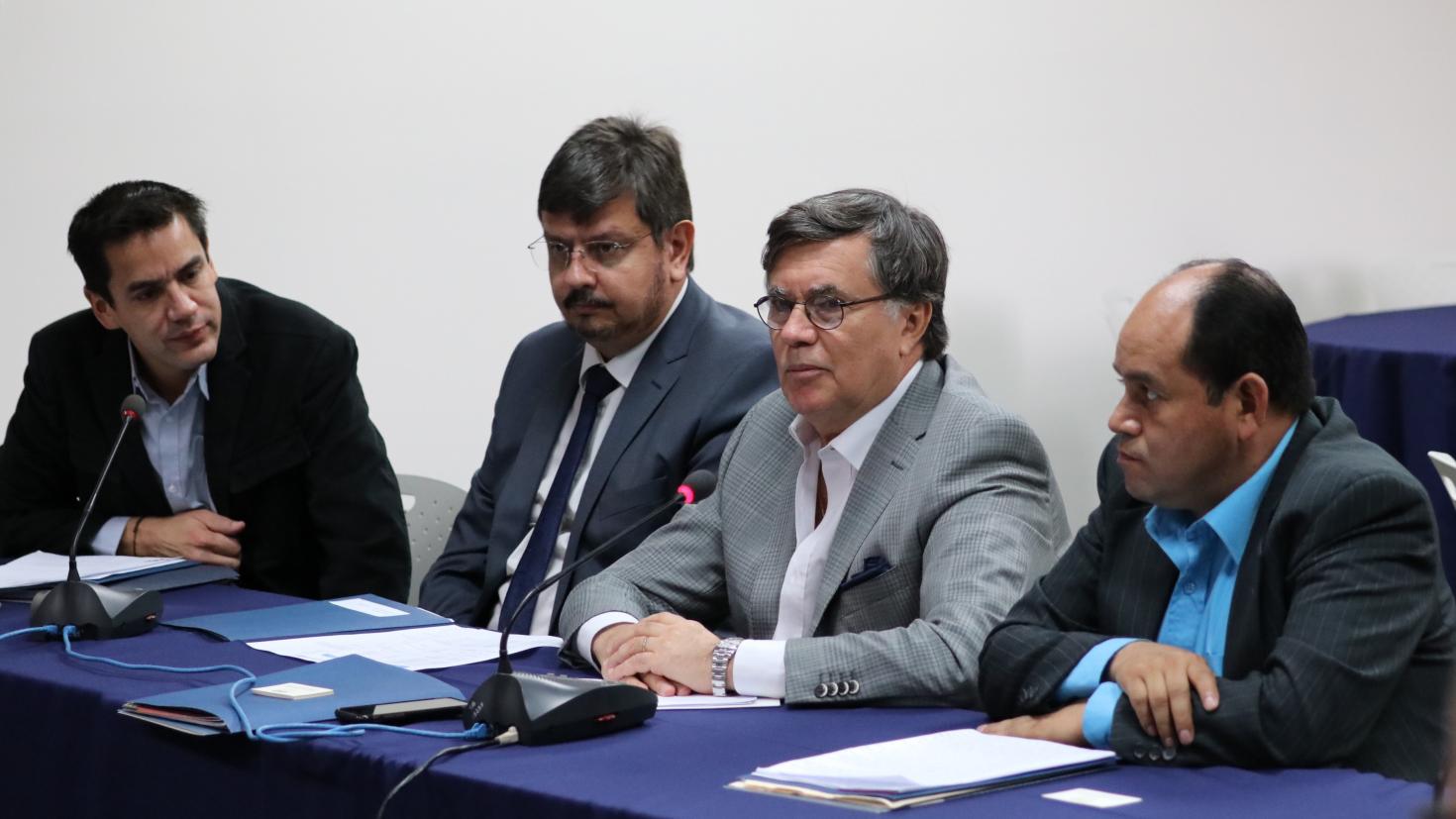According to data by PROMECAFE, the regional integration mechanism for the coffee sector, 25% of Arabica coffee consumed worldwide is produced in Central America, the Dominican Republic and Jamaica.

San Jose, 27 May 2019 (IICA). Representatives of institutions that govern matters related to the coffee sector in Central America and the Dominican Republic gathered in San Jose, Costa Rica, to analyze joint proposals aimed at addressing the pressing issues facing coffee farming, as well as to strengthen their mechanisms for dialogue, which receive support from the Inter-American Institute for Cooperation on Agriculture (IICA).
The platform, entitled Regional Cooperative Program for the Technological Development and Modernization of Coffee Production (PROMECAFE), supports coffee farmers in Guatemala, El Salvador, Nicaragua, Honduras, Costa Rica, Panama, the Dominican Republic and Jamaica. Its work plan is geared toward resolving the economic, commercial and phytosanitary challenges that these farmers face as a result of climate change and low international prices for coffee, among other factors.
The Director General of the Inter-American Institute for Cooperation on Agriculture (IICA), Manuel Otero, participated in the meeting and reiterated his commitment to the regional mechanism. “IICA will continue cooperating with the countries to ensure that this production sector is able to respond in an efficient, coordinated manner,” he stated.
“We must undertake coordinated efforts to identify solutions, represent the interests of the region as a solid block in international bodies, and serve as a platform for the management of financial resources that would provide coffee farmers in the region with more and better tools,” remarked René León Gómez, Executive Secretary of PROMECAFE.
Xinia Chaves, Executive Director of the Costa Rican Coffee Institute (ICAFE), explained that “the situation today resembles that which we experienced during the coffee leaf rust crisis, around the time PROMECAFE was founded. Therefore, we must draw closer together and prepare for the impetus of innovation, research and technology transfer in coffee production.”
PROMECAFE is a research and cooperation network made up of the national coffee institutes of Guatemala, El Salvador, Nicaragua, Honduras, Costa Rica, Panama, the Dominican Republic and Jamaica, as well as IICA and the Tropical Agricultural Research and Higher Education Center (CATIE).
PROMECAFE was created in 1978 with the aim of fostering the modernization, improvement and sustainable development of coffee farming. Through technical and scientific cooperation, the Program improves the sustainable farming, processing and postharvest management of coffee, while fostering environmental protection in the industry.
“From Mexico to Peru, coffee represents a cross-cutting issue that must be included as a priority in the Sustainable Development Goals. With support from IICA, we can continue on a path toward well-being and the transformation and sustainability of production,” explained Chaves.
According to René León Gómez, coffee farming in Central American and Caribbean countries accounts for 25% of Arabica coffee consumed worldwide, and more than 1.5 million families in the region depend on this activity. However, climate change, coffee diseases, low international market prices, farmer debt and limited manpower place coffee farming at a crossroads.
More information:
Breno Tiburcio, Principal Officer in Family Farming at IICA.











